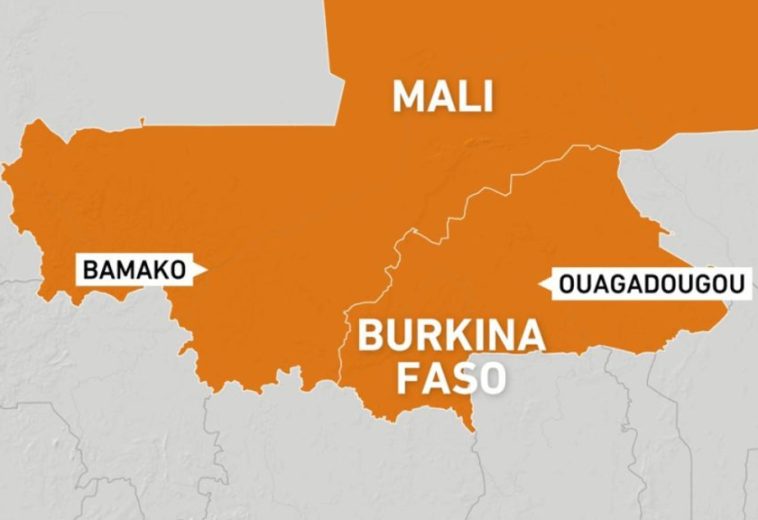Across Africa, women have long been instrumental in fostering peace and resolving conflicts within their communities and nations. Despite facing systemic barriers and gender-based discrimination, women have demonstrated resilience, creativity, and leadership in peace-building efforts. This essay provides a comprehensive analysis of women’s roles in peace and conflict resolution in Africa, examining the challenges they encounter, the strategies they employ, and the impact of their contributions. Through case studies and empirical evidence, this article highlights the importance of recognizing and supporting women’s participation in peace processes, not only as a matter of gender equality but also as a means to achieve sustainable peace and development.
Peace and stability are essential prerequisites for sustainable development and human security in Africa. However, the continent has been plagued by various forms of conflict, including civil wars, ethnic tensions, and political violence, which have had devastating social, economic, and humanitarian consequences. In the face of such challenges, women have emerged as key agents of peace, playing diverse roles in conflict prevention, resolution, and reconciliation across Africa.
Despite their significant contributions, women continue to be marginalized and excluded from formal peace processes, often relegated to the sidelines or confined to traditional roles within patriarchal societies. This essay seeks to analyze the vital role of women in peace and conflict resolution in Africa, exploring the obstacles they face, the strategies they employ, and the transformative impact of their involvement. By shedding light on women’s agency and resilience in peacebuilding efforts, this essay aims to underscore the imperative of empowering women and promoting gender equality as central pillars of sustainable peace and development in Africa.
Women’s Roles in Peace and Conflict Resolution
Women play multifaceted roles in peace and conflict resolution, operating at various levels—from grassroots community initiatives to national and regional peace processes. Their contributions encompass mediation, negotiation, advocacy, reconciliation, and grassroots mobilization, often drawing on their unique experiences, perspectives, and networks to address the root causes of conflict and promote sustainable peace.
At the grassroots level, women are often the first responders to conflict, mobilizing their communities, providing humanitarian assistance, and fostering dialogue and reconciliation. Through women’s peace committees, community dialogues, and interfaith networks, women promote social cohesion, resolve intercommunal tensions, and mitigate the impact of violence on vulnerable populations, including women and children.
In addition to their grassroots efforts, women have also been active participants in formal peace processes, albeit often in limited capacities. Women’s inclusion in peace negotiations and decision-making bodies has been shown to enhance the legitimacy, effectiveness, and sustainability of peace agreements. Women bring diverse perspectives, priorities, and skills to the table, advocating for issues such as gender equality, human rights, transitional justice, and the inclusion of marginalized groups.
Case Studies of Women’s Peace building Initiatives
Liberia: The Women of Liberia Mass Action for Peace movement, led by women such as Leymah Gbowee and Ellen Johnson Sirleaf, played a pivotal role in ending the country’s civil war and paving the way for peace and democracy. Through nonviolent protests, advocacy campaigns, and grassroots mobilization, Liberian women pressured warring factions to negotiate peace agreements and participate in reconciliation efforts.
Rwanda: In the aftermath of the 1994 genocide, Rwandan women played a central role in rebuilding their shattered communities and promoting reconciliation. Women’s organizations such as SEVOTA (Solidarity for the Development of Widows and Orphans to Promote Self-Sufficiency and Livelihoods) provided support to survivors, facilitated trauma healing, and promoted social cohesion through initiatives such as women’s cooperatives and peacebuilding workshops.
Sudan/South Sudan: Women from Sudan and South Sudan have been instrumental in advocating for peace and addressing the root causes of conflict in the region. Organizations such as the Sudanese Women Empowerment for Peace (SuWEP) and the South Sudan Women’s Empowerment Network (SSWEN) have mobilized women across ethnic and religious lines to demand an end to violence, promote dialogue, and participate in peace negotiations.
Despite their invaluable contributions, women face numerous challenges and barriers to their participation in peace and conflict resolution efforts in Africa. These challenges include:
Patriarchal Norms and Gender Stereotypes: Deeply entrenched patriarchal norms and gender stereotypes often marginalize women’s voices, limit their access to decision-making spaces, and undermine their credibility as peacebuilders. Women may face resistance, discrimination, and backlash when challenging traditional gender roles or advocating for their inclusion in peace processes.
Lack of Representation and Inclusion: Women are frequently underrepresented or excluded from formal peace negotiations, decision-making bodies, and leadership positions. Peace processes often lack gender balance and fail to adequately address the specific needs, priorities, and experiences of women and other marginalized groups.
Resource Constraints: Women-led peacebuilding initiatives often face resource constraints, including limited funding, capacity, and institutional support. Women’s organizations may struggle to access funding, technical assistance, and other resources needed to sustain their activities and scale up their impact.
Security Risks and Gender-Based Violence: Women peace builders are vulnerable to various forms of gender-based violence, including sexual harassment, intimidation, and targeted attacks. In conflict-affected areas, women may face heightened security risks when advocating for peace, challenging armed groups, or promoting human rights.
Strategies for Empowerment and Inclusion
Addressing the challenges and barriers to women’s participation in peace and conflict resolution requires a multifaceted approach that combines legal, policy, institutional, and societal reforms. Key strategies include:
Legal and Policy Reforms: Enacting and enforcing laws and policies that promote gender equality, women’s rights, and women’s participation in peace processes. This includes adopting quotas or affirmative action measures to ensure women’s representation in decision-making bodies and peace negotiations.
Capacity-Building and Training: Providing training, capacity-building, and mentorship programs to enhance women’s skills, knowledge, and confidence as peacebuilders. This includes training in negotiation, mediation, conflict resolution, leadership, and advocacy.
Institutional Support and Funding: Allocating resources and providing institutional support to women’s organizations and peacebuilding initiatives. This includes funding women-led projects, providing technical assistance, and establishing partnerships with civil society, international organizations, and donor agencies.
Awareness-Raising and Advocacy: Conducting awareness-raising campaigns and advocacy efforts to promote the importance of women’s participation in peace and conflict resolution. This includes challenging gender stereotypes, highlighting women’s contributions to peace building, and mobilizing support for gender-sensitive peace processes.
Impacts of Women’s Participation
The inclusion of women in peace and conflict resolution processes yields numerous benefits, including:
Enhanced Legitimacy and Effectiveness: Women’s participation enhances the legitimacy, inclusivity, and effectiveness of peace processes, leading to more comprehensive and sustainable peace agreements. Women bring diverse perspectives, priorities, and skills to the table, addressing the root causes of conflict and promoting reconciliation.
Gender-Responsive Solutions: Women’s participation ensures that peace agreements and post-conflict reconstruction efforts address the specific needs, priorities, and experiences of women and other marginalized groups. This includes provisions for gender equality, women’s rights, access to justice, and socio-economic empowerment.
Social Cohesion and Reconciliation: Women’s peace building initiatives promote social cohesion, reconciliation, and healing in conflict-affected communities. By fostering dialogue, empathy, and understanding across ethnic, religious, and cultural divides, women contribute to building trust and solidarity among diverse groups, laying the foundation for long-term peace and stability.
Sustainable Development: Women’s participation in peace building contributes to sustainable development by addressing the underlying socio-economic and political grievances that fuel conflicts. When women are empowered to participate in decision-making processes, allocate resources, and shape development priorities, they can promote inclusive growth, poverty reduction, and social justice.
Role Models and Empowerment: Women’s involvement in peace building serves as a powerful example for future generations, inspiring other women and girls to assert their rights, pursue leadership roles, and contribute to positive change in their communities. By challenging traditional gender roles and stereotypes, women peace builders empower themselves and others to demand equality, justice, and dignity.
Women’s integral role in peace and conflict resolution in Africa is undeniable, yet often overlooked or marginalized. Despite facing systemic barriers and gender-based discrimination, women have demonstrated remarkable resilience, creativity, and leadership in fostering peace, reconciliation, and social cohesion within their communities and nations.
To harness the full potential of women as agents of peace, it is imperative to address the structural inequalities and institutional biases that limit their participation in peace processes. This requires legal reforms, policy changes, institutional support, and societal transformations that promote gender equality, women’s rights, and women’s empowerment.
By recognizing and supporting women’s contributions to peace building, African countries can unlock new opportunities for sustainable development, human security, and inclusive prosperity. Investing in women’s leadership, skills development, and participation in decision-making processes is not only a matter of justice and human rights but also a strategic imperative for building peaceful and resilient societies in Africa and beyond.
As we strive for a future free from violence and conflict, let us heed the voices of women, amplify their efforts, and work together to create a world where peace, justice, and equality prevail.


